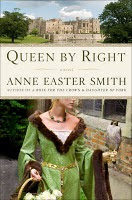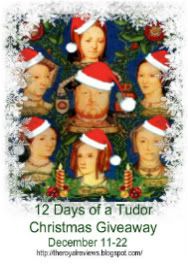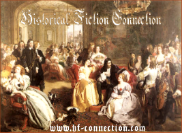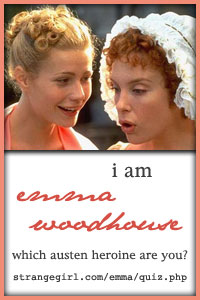While awaiting the wedding of Prince William and Kate Middleton on Friday, many have wondered what kind of King and Queen these two will become and how their reign will impact Britain. I have thought the same thing but I have also thought back on the many monarchs who have already left their mark on the kingdom. Thus the idea for this post was born and below are the monarchs (up to 1603) who I feel made the biggest impact on England - for good or bad.
1.
William the ConquerorObviously we need to start at the beginning (or close to it anyway!) and that means the Norman Conquest of 1066. One of the most well known of William's

contributions is the Tower of London. He originally built it to show the native English that he was now in charge and he was there to stay. Another of William's contributions to history, and one that may be more important historically, is the Doomsday Book, which was a very complete survey of England at the time (names of towns, who lived there, what they owned, etc, etc). Many customs, especially in the royal court, were formed during William's reign. The Anglo-Saxon ways were slowly erased. The coming of the Normans changed much in England and many of those changes remained through the years.
2.
JohnThis youngest son of Eleanor of Aquitaine and Henry II is usually seen as one of the worst kings

in English history but there is one legacy from his reign that made a huge impact on the country and its future - Magna Carta. Because of the lack of trust between John and his barons, Magna Carta was eventually forced on John as a way of controlling some of the monarch's powers. While bits and pieces of this were whittled away over the years, some of the laws set down in the 13th century remain to this day. Some view Magna Carta as a "great constitutional document," the beginnings of the freedoms so many enjoy today.
3.
Edward IThis warrior king changed the boundaries of England as no king before him had

done. He accomplished what no king before him had managed - the conquest of Wales and Scotland. Granted, England's control of Scotland turned out to be temporary, but Edward did manage to expand England's boundaries and much of that remains in "English" hands to this day. In order to hang on to England's new territory and fill the local populaces with awe, Edward went on a building spree of massive proportions, building many castles along the Welsh border, most of which can be visited today (Caernarfon Castle for example).
4.
Henry VAnother of England's warrior kings set quite a bit in motion for England's future,

though at the time most of it could not have been imagined. His victory in France gave Englishmen a strong sense of pride, not to mention the desire continue the country's military successes for several generations. After his victory over France and claiming of the French crown (which many English monarchs tried to actually wear), he married the French King's daughter, who in turn gave birth to the future Henry VI, whose reign would be the main battle ground of the Wars of the Roses.
5.
Henry VIIWhile I am not overly fond of the man, I add Henry VII to this list mainly for the

fact that had he not been victorious on Bosworth Field, the next two powerful monarchs on my list would not have existed. It is hard to image British history without the presence of this king's son and granddaughter, not to mention the huge changes that occurred during their reigns.
6.
Henry VIIIWhen talking about changes in England we can't overlook Henry's break from

the Catholic Church in his quest for a divorce. One could say that, aside from the Norman Conquest in 1066, the break with the Church during Henry's reign is the most significant change in England's history. It certainly was momentous and fueled tension in the country for many years to come. Henry VIII also began the building up of England's Navy, seeing it as a way to help build and secure the empire he so desperately wanted to create.
7.
Elizabeth IHenry VIII's daughter had an equally important impact on England and its future -

politically and culturally. The big triumph of Elizabeth's reign is the triumph of the English over the Spanish Armada. There is no way of knowing what England would be like today if Elizabeth and her small navy had not over come the much more powerful Spanish forces. However, Elizabeth's reign is particularly known for the achievements of artists, poets, and playwrights (does the name William Shakespeare ring any bells?); so many achievements and advancements were made during her reign that this literary time period is called the Elizabethan era.
I am well aware that these are not the only monarchs who have made an impact on England throughout its long history. I am also aware that these are just short little bits of information and many of these monarchs did much more than I have mentioned above. I simply wanted to highlight some of the kings (and queen) whose influence can still be seen through the country to this day.

 . Lady of the English, Elizabeth Chadwick
. Lady of the English, Elizabeth Chadwick George Knightley, Esquire: Lend me Leave, Barbara Cornthwaite
George Knightley, Esquire: Lend me Leave, Barbara Cornthwaite 3. Queen by Right, Anne Easter Smith
3. Queen by Right, Anne Easter Smith



































































